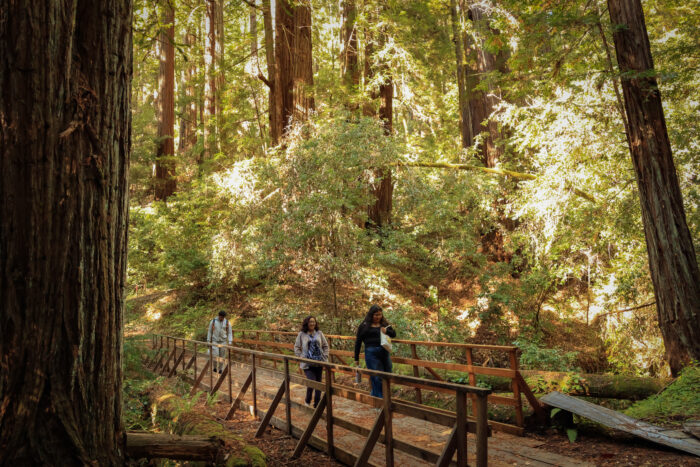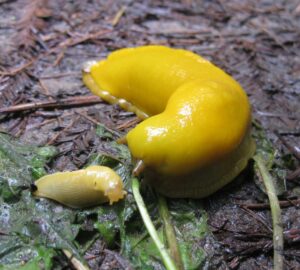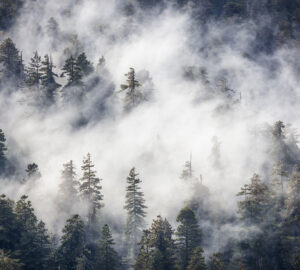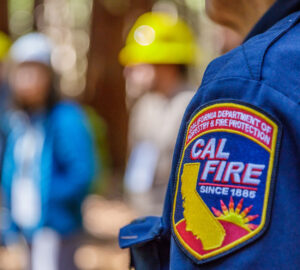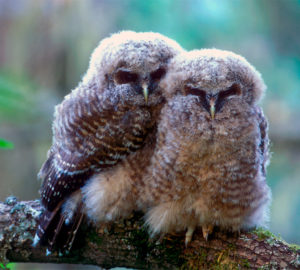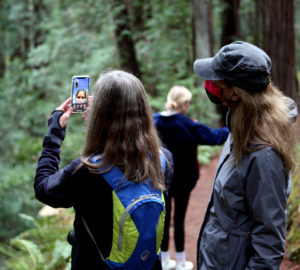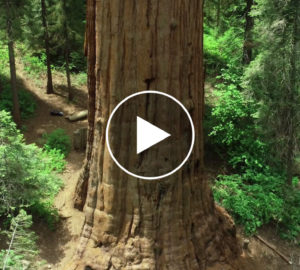Why California's gentle giants deserve a place on your gratitude list
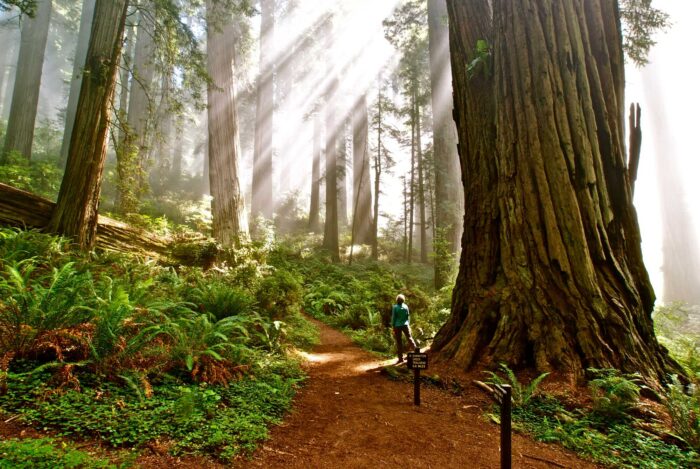
Somehow it’s easy to forget to say thank you. Even with an entire holiday devoted to giving thanks, we often fail to slow down and appreciate the things that truly make our lives better. Things like family, friends, democracy, chocolate ice cream … and redwood trees. Yes, colossal coast redwoods and superlative giant sequoias deserve a spot on your gratitude list. Here’s why:
Redwood forests provide habitat for amazing animals
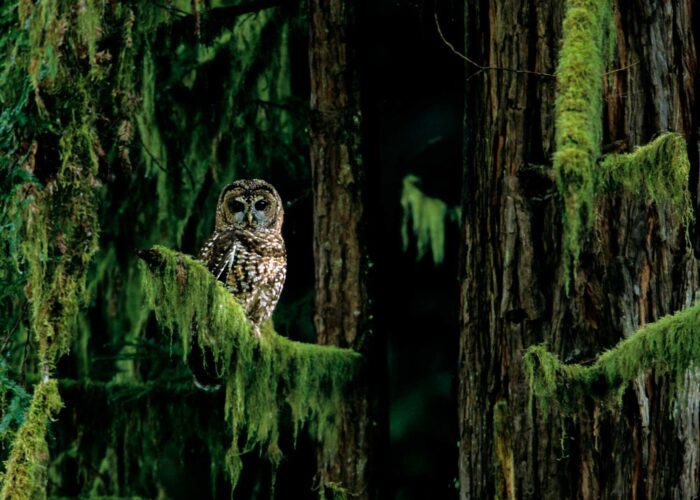
Incredible creatures thrive in California’s redwood forests: Pileated woodpeckers and leathery bats swoop through the canopy; gray foxes and black bears prowl the understory; Coho salmon and mountain yellow-legged frogs splash and swim in redwood-shaded streams. We’re talking more than 200 vertebrate species—not to mention invertebrates like the brilliant yellow California banana slug.
Old-growth redwood forests boast the greatest biodiversity, but formerly logged forests, if allowed to heal, can develop the features that support diverse species. This includes the wandering salamander, which can live in dense mats of moss and ferns that grow on branches over 100 feet in the air. Or the nimble Pacific fisher, a member of the weasel family that makes its den in the fire-carved hollows of giant sequoias.
Discover more unique plants and animals of the redwood forest.
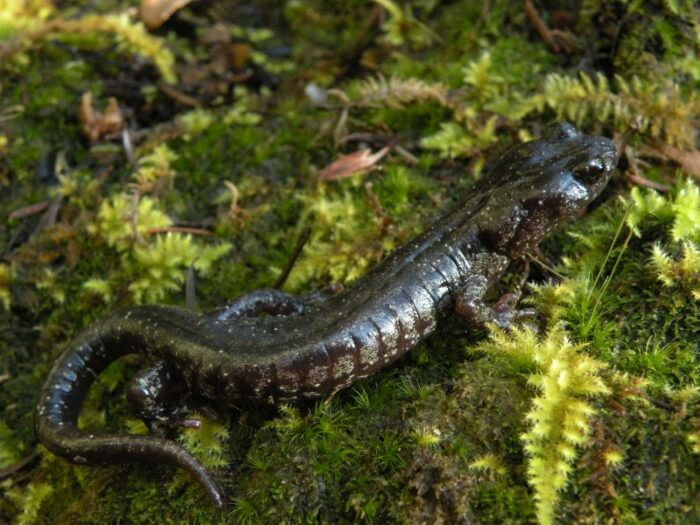
Redwood trees are fierce climate allies
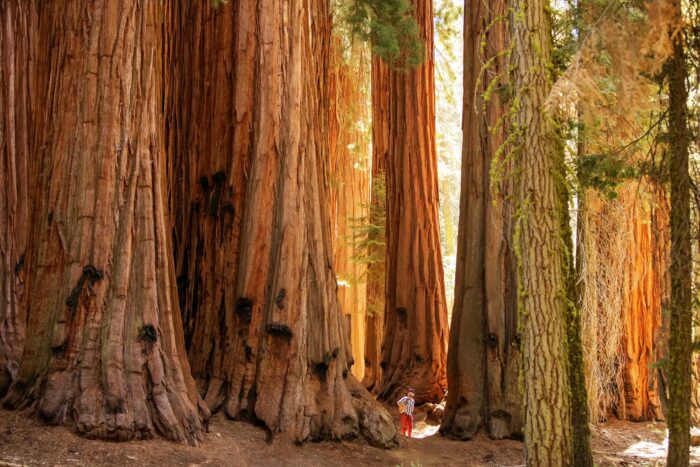
Acre for acre, no other type of forest does as much to keep planet-warming gasses out of our atmosphere. These ancients giants gobble up carbon like nobody’s business: According to research out of Cal Poly Humboldt, an acre of old-growth coast redwoods can store up to 890 metric tons of carbon—the equivalent to taking 700 cars off the road for an entire year. Just imagine what a vast landscape of redwoods could do!
Like other plants, redwoods work this magic through photosynthesis, drawing in carbon dioxide and releasing life-giving oxygen back into the air. Redwoods convert the remaining carbon into sugars to add girth to their trunks and grow new branches and roots. This carbon stays safely locked away for the redwood’s lifetime, which can be over two thousand years.
Learn more about how redwoods can help us fight climate change.
Redwoods do wonders for our water quality
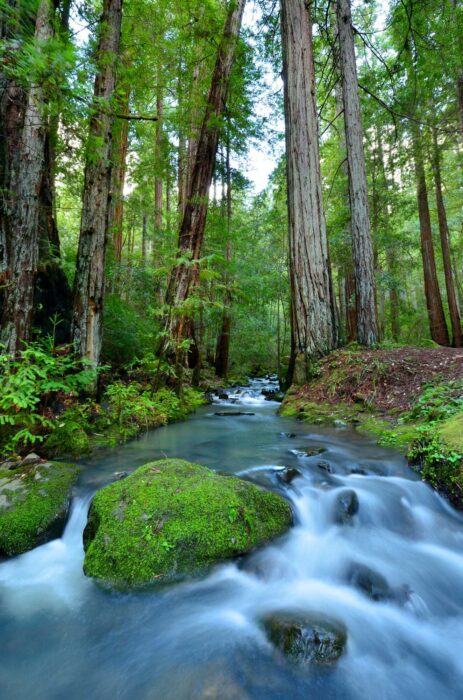
If you’ve ever camped in a redwood forest, you probably marveled at the plush, comfy feel of the forest floor beneath your tent. When it rains, this spongy, root-filled layer of soil acts almost like a giant Brita filter, purifying the rainwater as it trickles down. Big redwoods also pump as much as 500 gallons of water a day from their roots to their crown, transporting it through vascular tissue known as xylem, which has a filtering effect. Researchers have explored using the xylem of conifers as filters to remove pathogens from water.
Across California, healthy redwood forests clean trillions of gallons of water—plenty of which ends up in our drinking glasses. The dense forest canopy also shades rivers and streams, while root systems minimize the erosion of sediment into waterways. This provide coho and Chinook salmon and steelhead trout with the cold, clear water they need to thrive.
Learn how Redwoods Rising is restoring salmon-bearing streams.
Redwoods lift our spirits and improve our health

Exploring a redwood forest is practically guaranteed to improve your mood. It’s something about the dreamily diffuse light, those sturdy “I’ve got your back” tree trunks, the act of tilting your head up towards the green canopy rather than frowning down at your iPhone. The effect is so calming, doctors prescribe nature walks in the redwoods to address anxiety, stress, and other health issues.
Beyond finding peace and joy in the forest, research shows that spending time in the redwoods and other natural settings can improve immune function and lower cortisol levels, blood pressure, and heart rate. That’s on top of the health benefits of hiking, biking, and other fun physical activities that these magnificent forests inspire.
Learn more about how redwood forests can heal us.
